My Favorite Self-Hosted Apps Launched In 2024
A look back at some of my favorite self-hosted software and applications from 2024

2024 has undoubtedly been a fantastic year for self-hosted software. Not only were developers busy delivering significant updates to existing projects – they were also launching new projects left and right. In my weekly newsletter, I averaged featuring anywhere from 10-15 new projects a week (I'm fairly certain the record was 26 in a single week).
As someone who keeps a close eye on many of these projects after launch, I thought it'd be helpful for others to compile a list of those I've found to be particularly noteworthy. I've included them based on a number of informal 'scoring' factors, which include functionality (uniqueness, etc.), community reception, and development activity.
And while I've compiled this list to help those who might not have the bandwidth to explore every option, I'd still recommend readers make an effort to discover and support other projects as well (I do have my own biases, after all). If you're new to selfh.st, I have a helpful directory of self-hosted software and alternatives that might also be helpful.

Hoarder
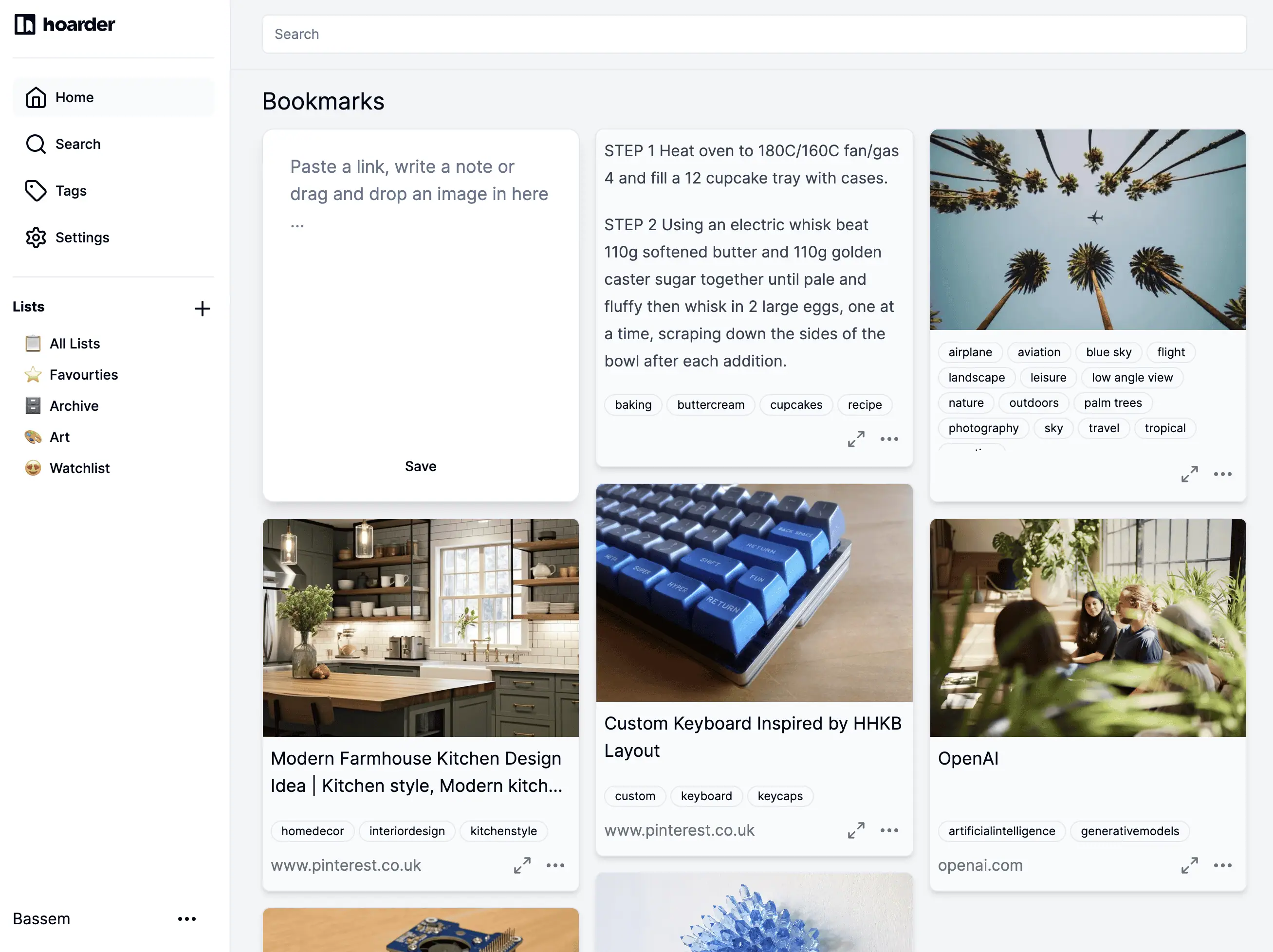
It’s hard to ignore the impact Hoarder has had in the read later and bookmarking software space, especially given Omnivore's recent news. The application came running right out of the gate with a clean interface for cataloguing links while also seamlessly integrating AI to assist users with tagging and organizing their articles. As a bonus, Hoarder comes with its own mobile apps for both iOS and Android while also supporting single sign-on.
Pinchflat
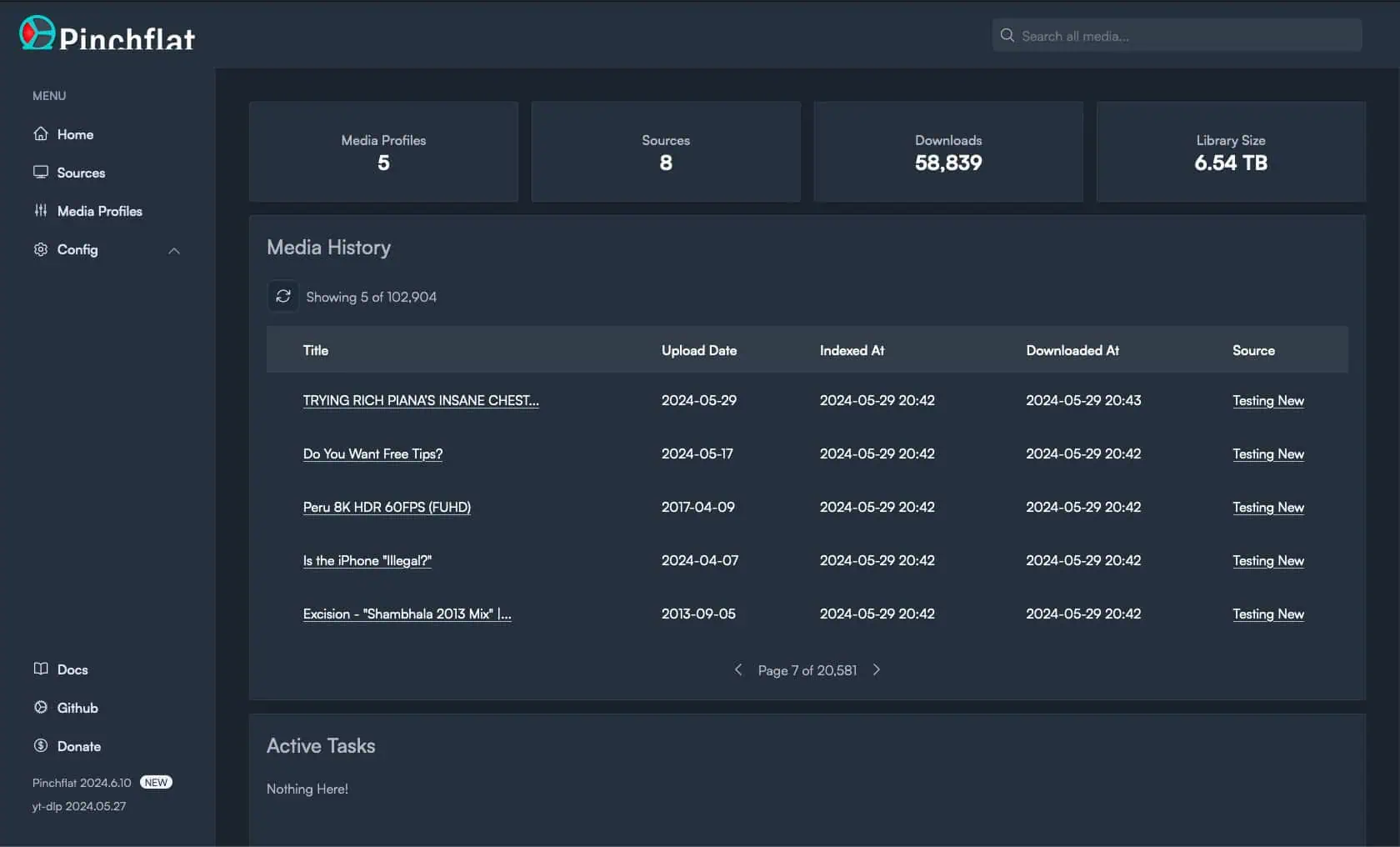
We’ve witnessed many YouTube frontends and downloaders come and go over the last several years, but Pinchflat’s release earlier this year turned a new page for those looking to collect and manage their favorite YouTube channels and playlists. Featuring a minimal interface and easy-to-spin up Docker container, Pinchflat makes subscribing to and downloading YouTube content a breeze – especially when streaming it through popular media servers like Plex, Jellyfin, or Emby.
Glance
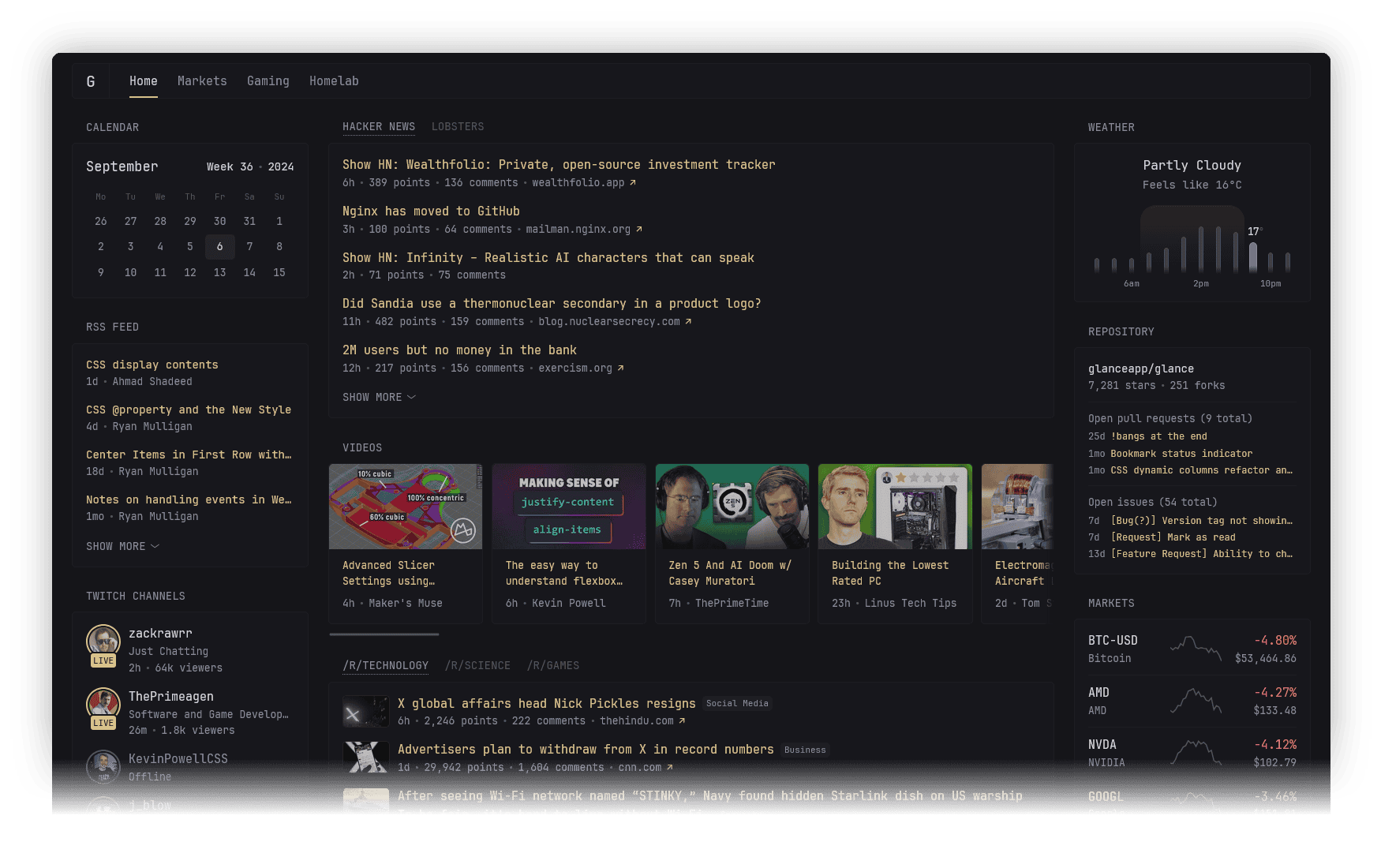
Glance is a Swiss Army Knife dashboard that consolidates various feeds into a single page, with built-in support for RSS feeds, subreddits, bookmarks, Hacker News, YouTube feeds, calendars, stocks, Twitch channels, GitHub releases, and more. Its iFrame widget also allows easy integration with webpages and other dashboards for those looking to combine functionality with other unsupported tools.
Docmost
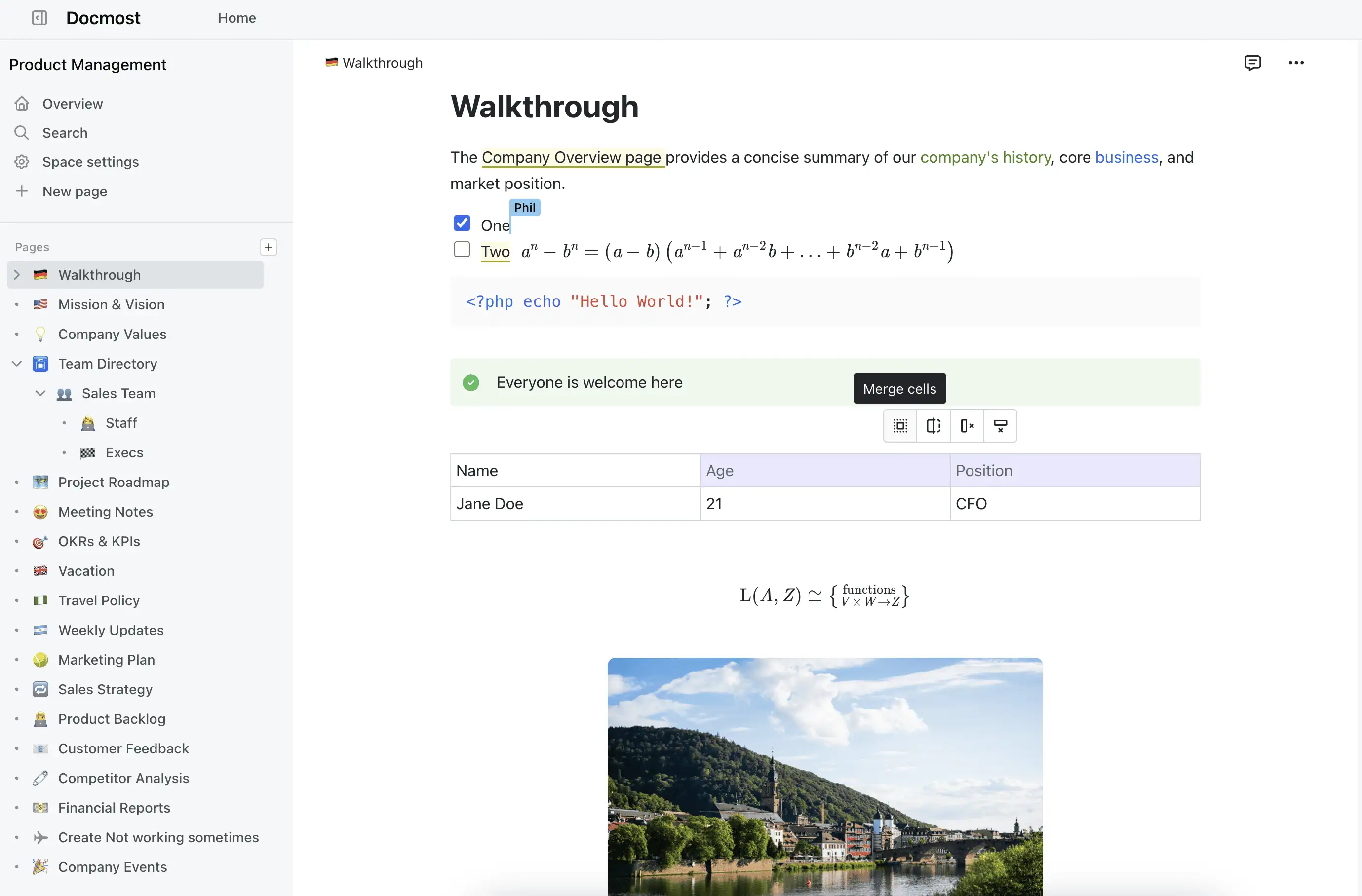
Docmost is a promising documentation and collaboration platform that quickly became a fan favorite with its initial launch halfway through the year. Featuring a modern, clean interface, Docmost supports multiple workspaces, real-time collaboration, comments, page history, attachments, and integrations with a few diagram services. The software is under active development and is expected to continue receiving new features that should make it a more than adequate alternative for other tools in the space.
Postiz
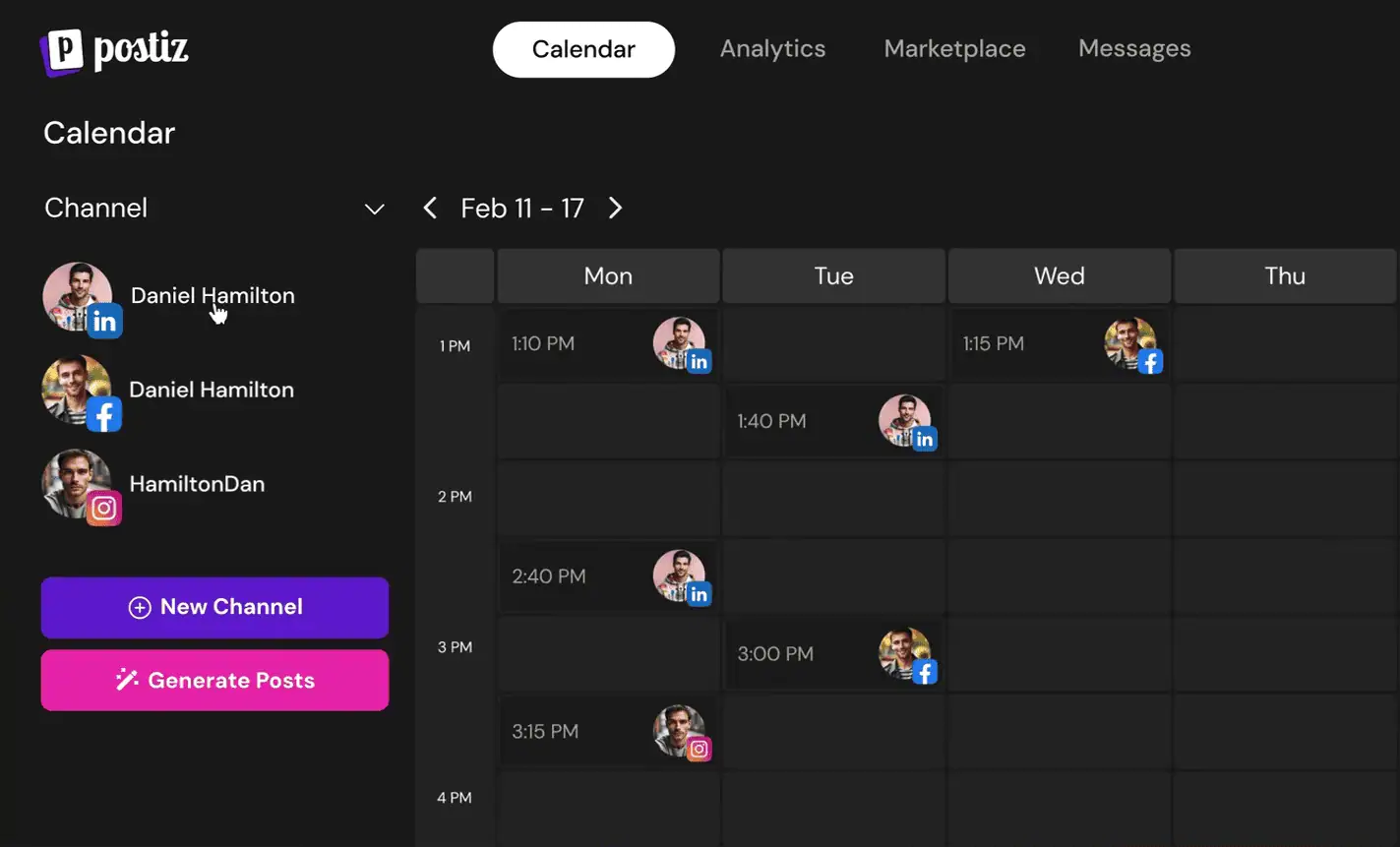
Postiz is a social media consolidation and scheduling tool with a touch of AI for those strategically managing multiple accounts. The application currently supports most popular social networks, and the development team has been extremely receptive to adding more. Postiz is also a one-stop-shop for post analytics, while standing out from the competition with its lack of paywalled features in its self-hosted edition.
Beszel
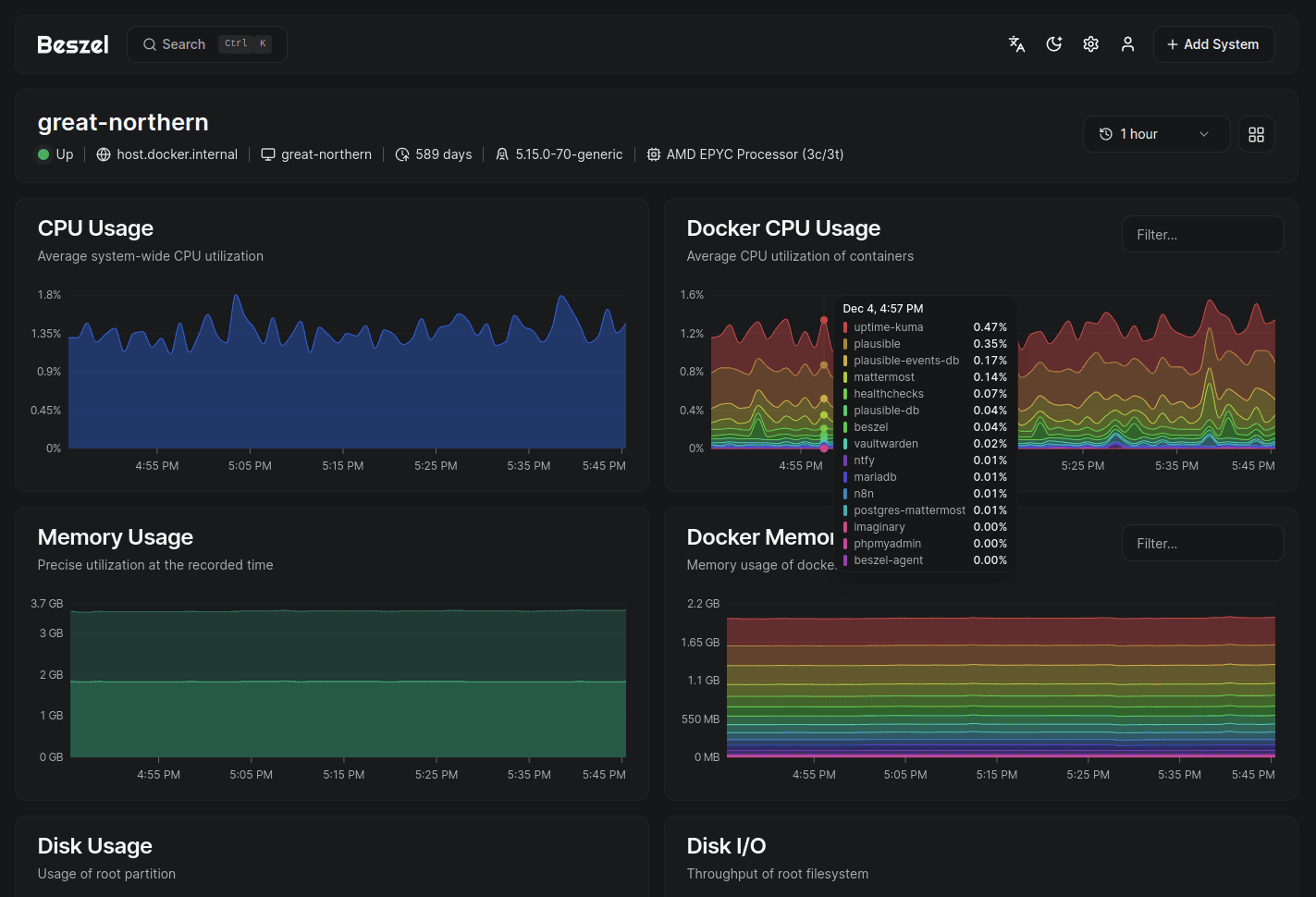
Beszel is a lightweight resource monitoring tool that made a huge splash in the community given its lack of overhead versus similar tools like Grafana. The platform can be used to easily monitor system and Docker stats with configurable alerts for a number of resources. Its split installation functionality between hub and agents means it can be installed on multiple systems while leveraging multi-user support and SSO to ensure users only have access to the specific systems.
ByteStash
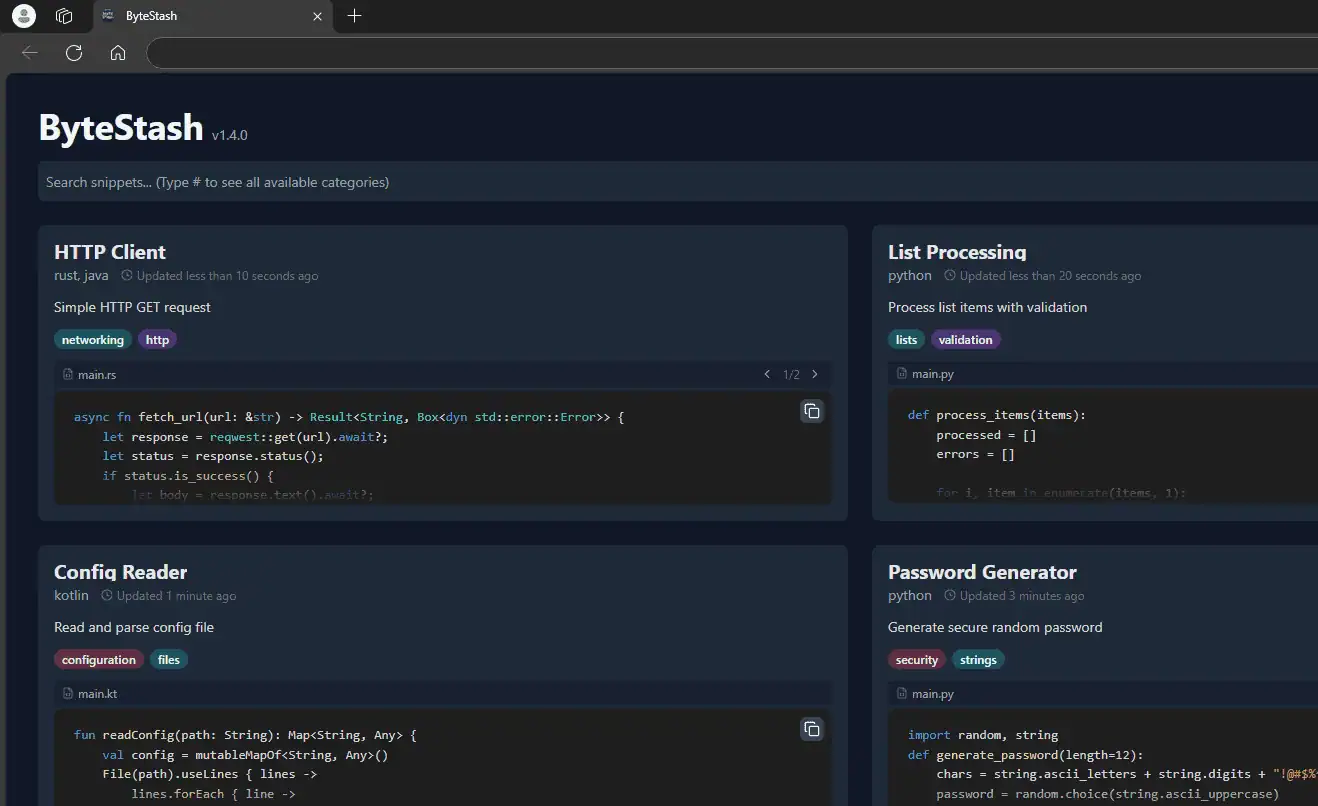
ByteStash is a sleek code snippet platform that launched just a few months ago. It features a modern interface that easily allows users to capture code snippets in various languages, with extensive search capabilities for later finding snippets by programming language or other keywords. The application also supports features like multiple users (including single sign-on) and fragments for storing the same snippet in various languages.
Beaver Habit Tracker
The launch of Beaver Habit Tracker scratched a very popular itch in the self-hosted world — habit tracking. Built for mobile use, the software features a mobile screen-friendly view for adding, managing, and tracking habits on-the-go. For those who need a little motivation to complete their tasks, Beaver Habit Tracker also features a GitHub streak-like chart for visualizing progress over a given period of time.
Streamyfin
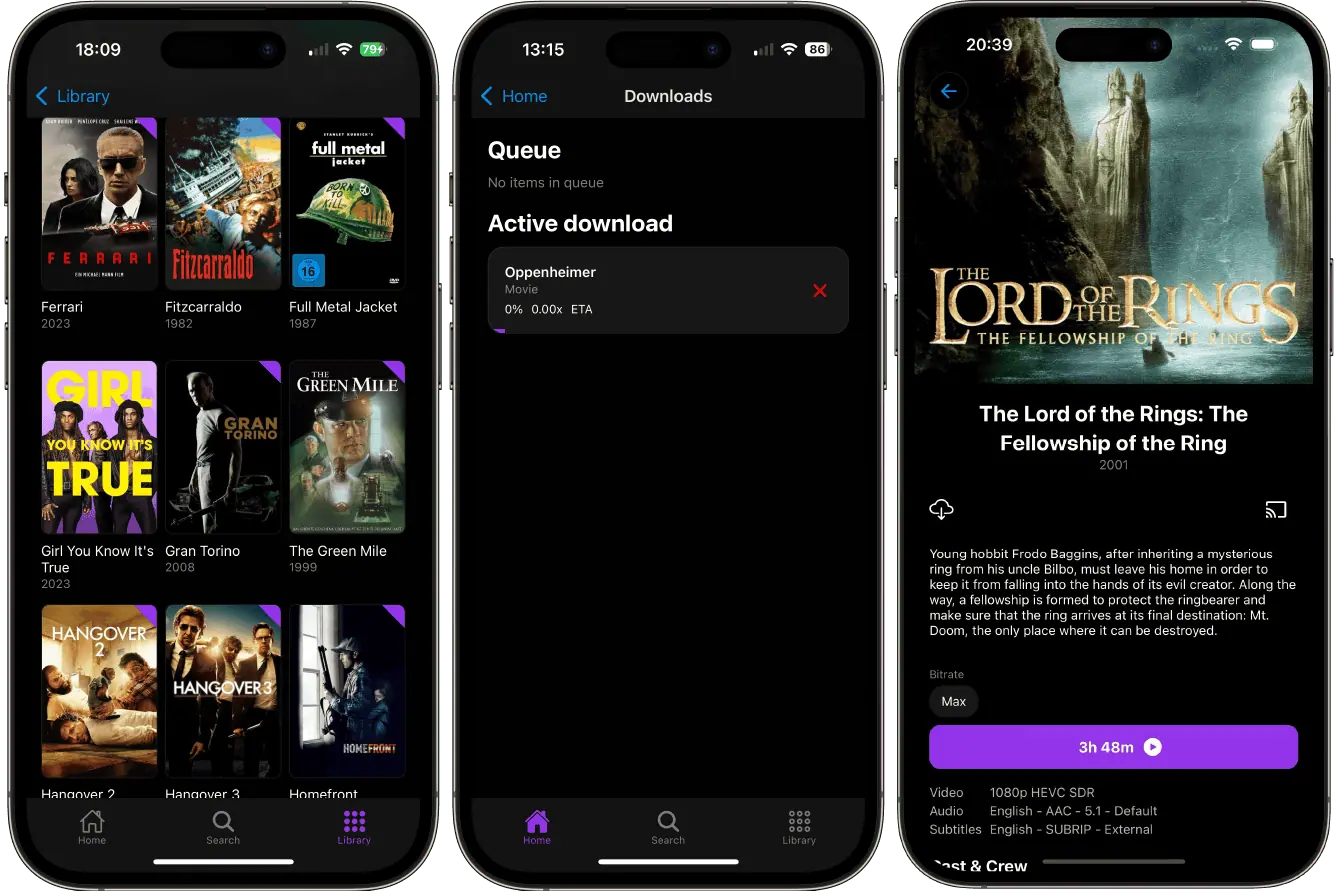
Streamyfin is a Jellyfin client that was very well-received across the community with its Android and iOS launches earlier this year. The application features a modern interface with support for a ton of official and unofficial Jellyfin capabilities, including Trickplay images, intro/credits skipping, background audio, picture-in-picture, media downloads, and Chromecast support. Streamyfin makes a very compelling case for those who’ve previously been afraid to make the jump to Jellyfin from Plex due to a lack of capable clients.
Pocket ID
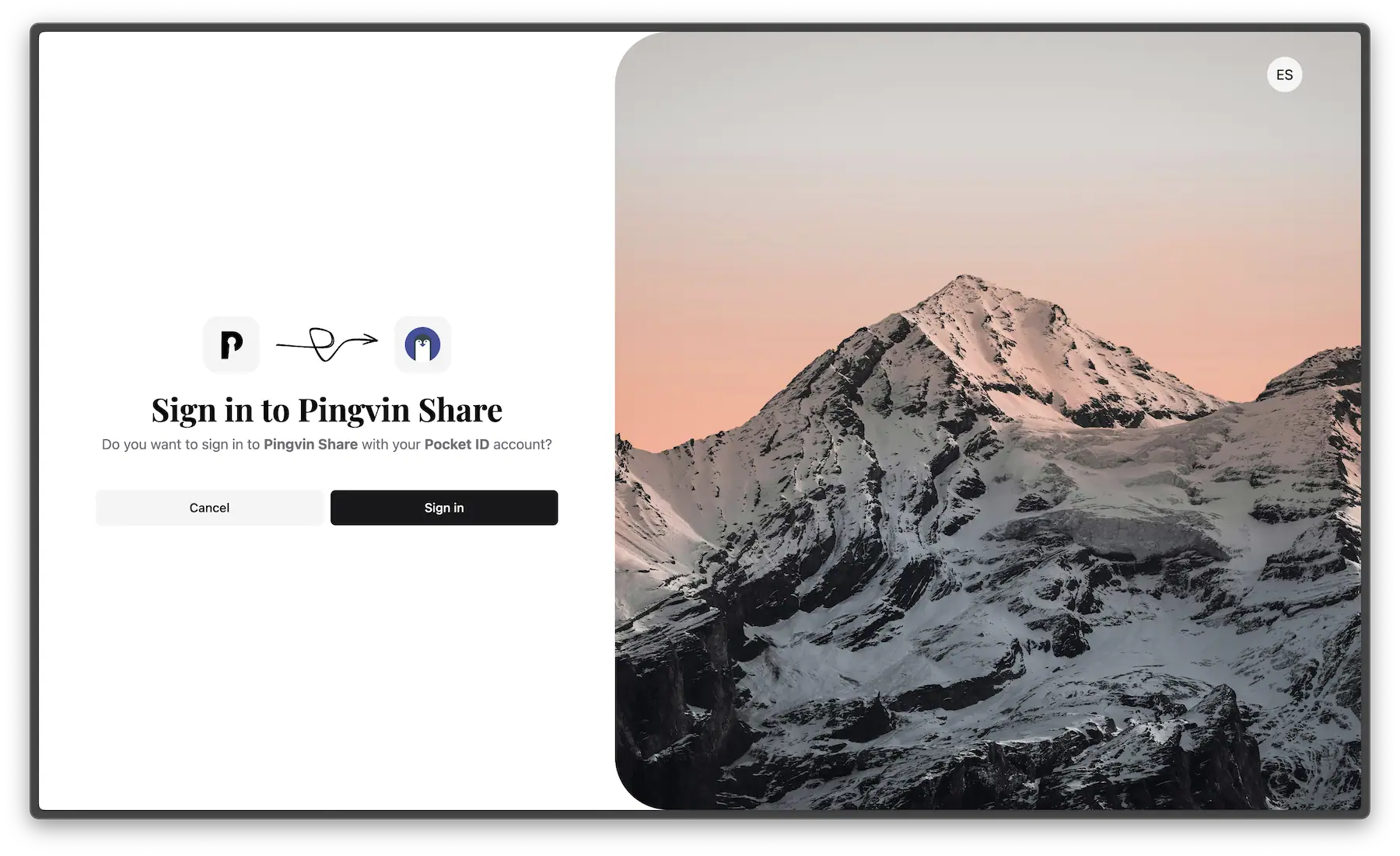
Pocket ID takes a novel approach to authentication capabilities by acting as a simple OIDC provider with support for passkeys only (yes, this means no passwords). Users can leverage Pocket ID’s functionality to replace similar but slightly more complex tools like Authelia, Authentik, or Keycloak for logging into their self-hosted services – eliminating the need for separate accounts for every service.
PdfDing
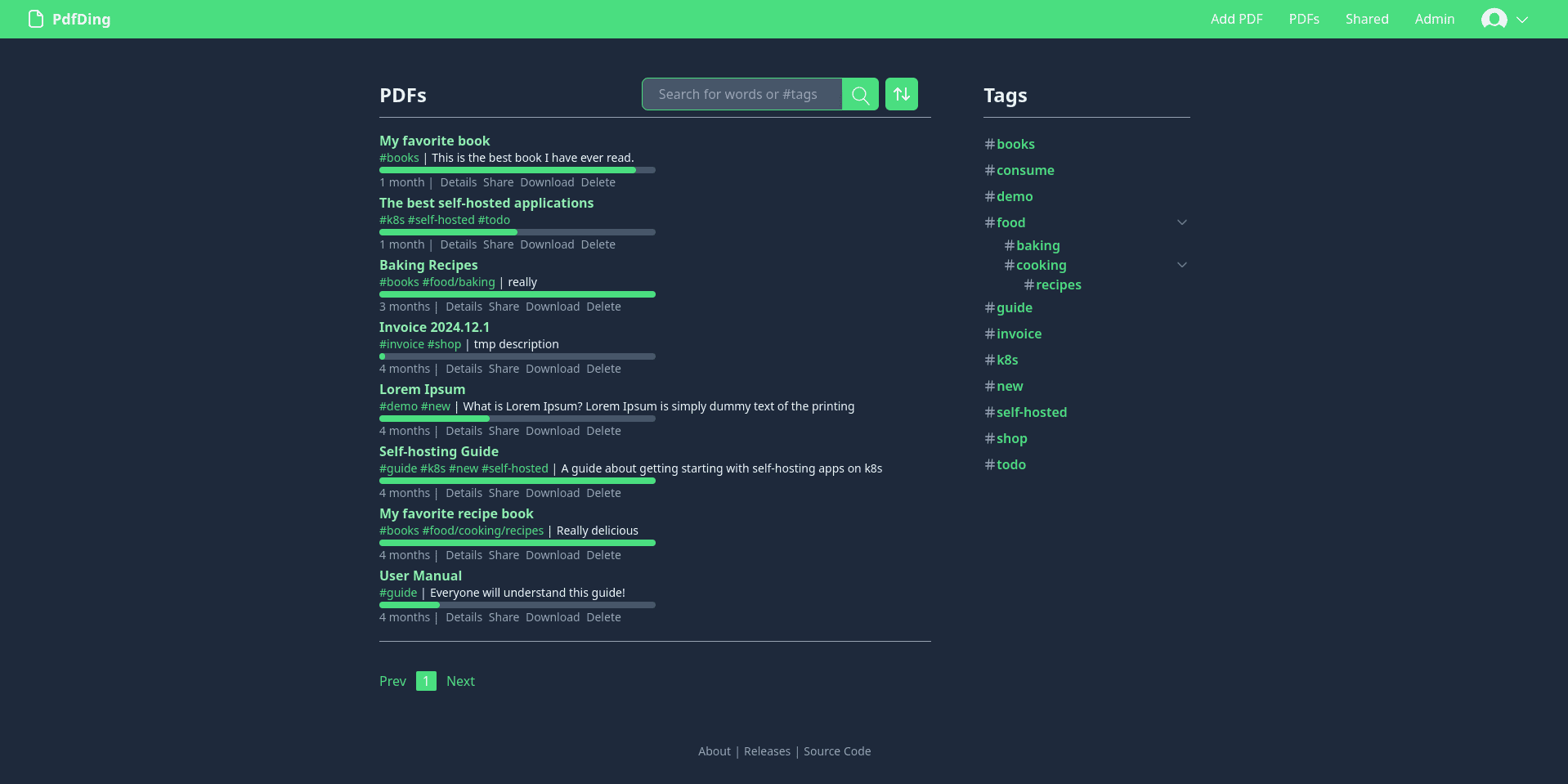
PdfDing is a PDF manager, viewer, and as of recent – editor – inspired by the likes of the popular bookmark manager Linkding in both name and design. PdfDing gives users an intuitive interface for tracking and accessing PDF files, with the ability to easily share with others – with or without password protection and expiration dates. For those managing multiple users, the application also supports single sign-on.
WhoDB
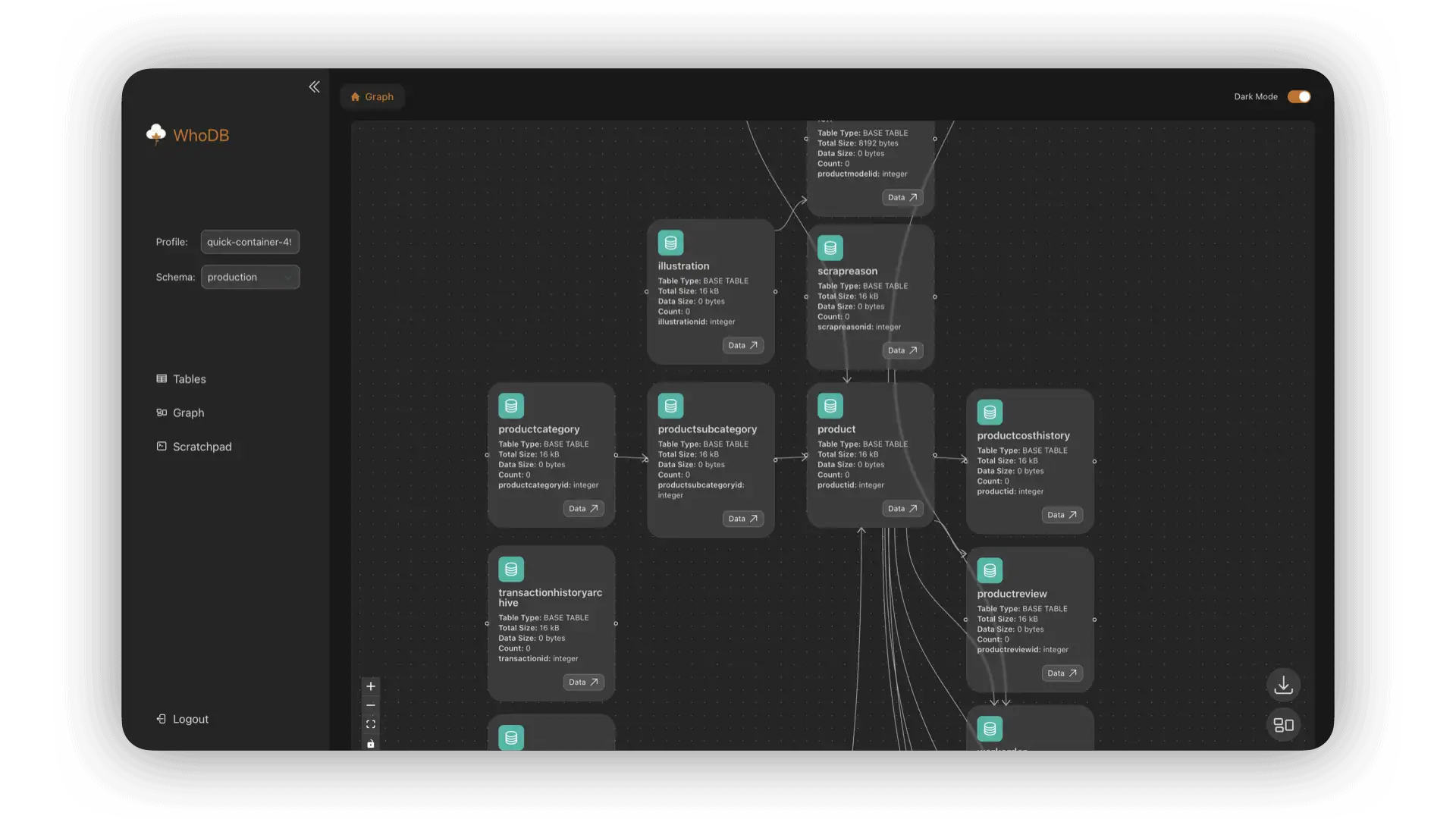
WhoDB is a lightweight database visualization and management tool meant to compete with existing database management solutions. The tool features a clean interface, fast performance, and broad support for various database systems. WhoDB’s integration with AI tools also makes it easy to quickly generate complex SQL queries directly from the application’s interface.
Dawarich
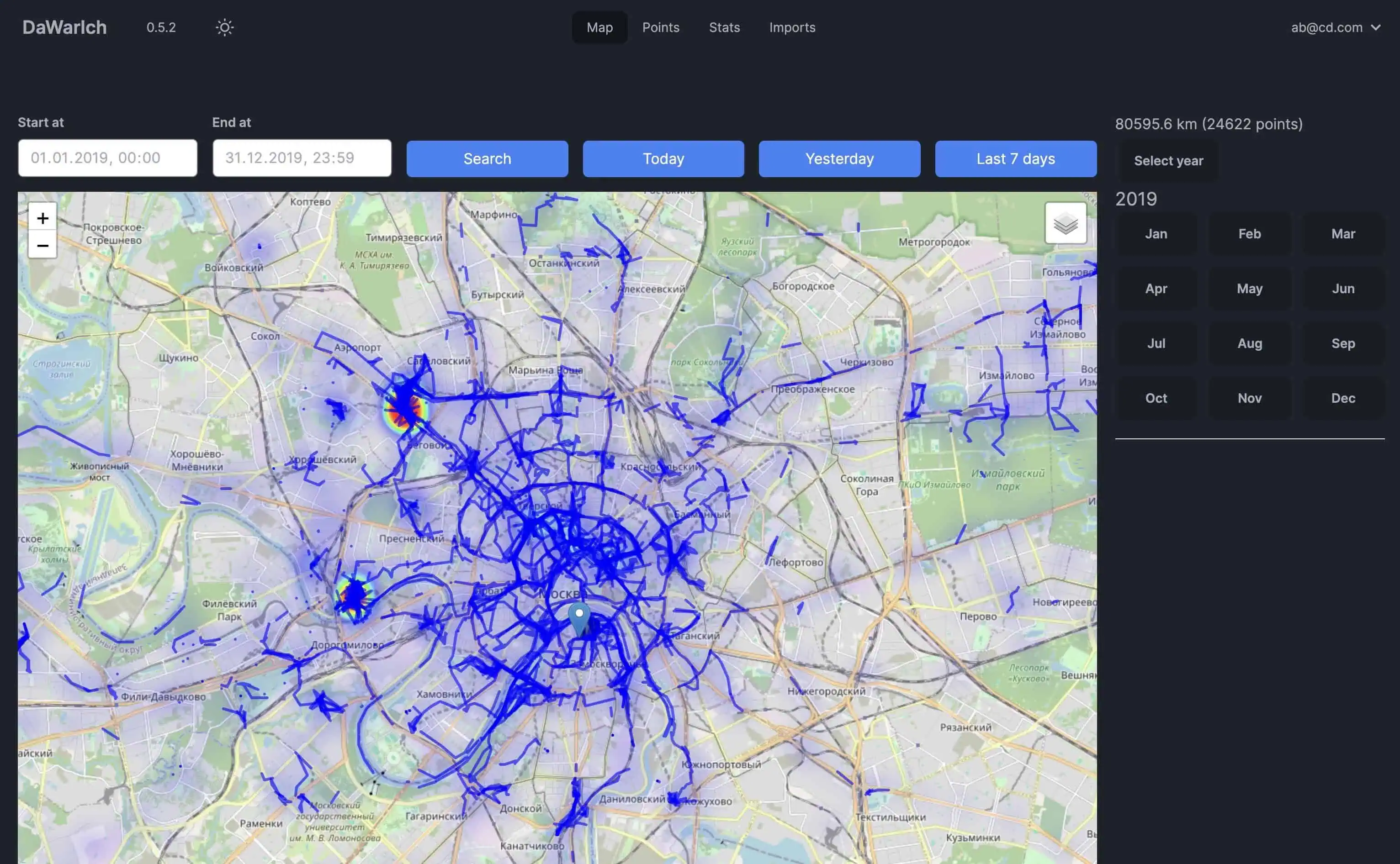
Dawarich is a self-hosted location tracking alternative to Google Maps Timeline. The application integrates with a number of services for tracking user locations — OwnTracks and Home Assistant, to name a few — and provides an interactive map and statistics for later revisiting. Dawarich also provides import capabilities for users migrating to the platform who may not want to start from scratch.
Slink
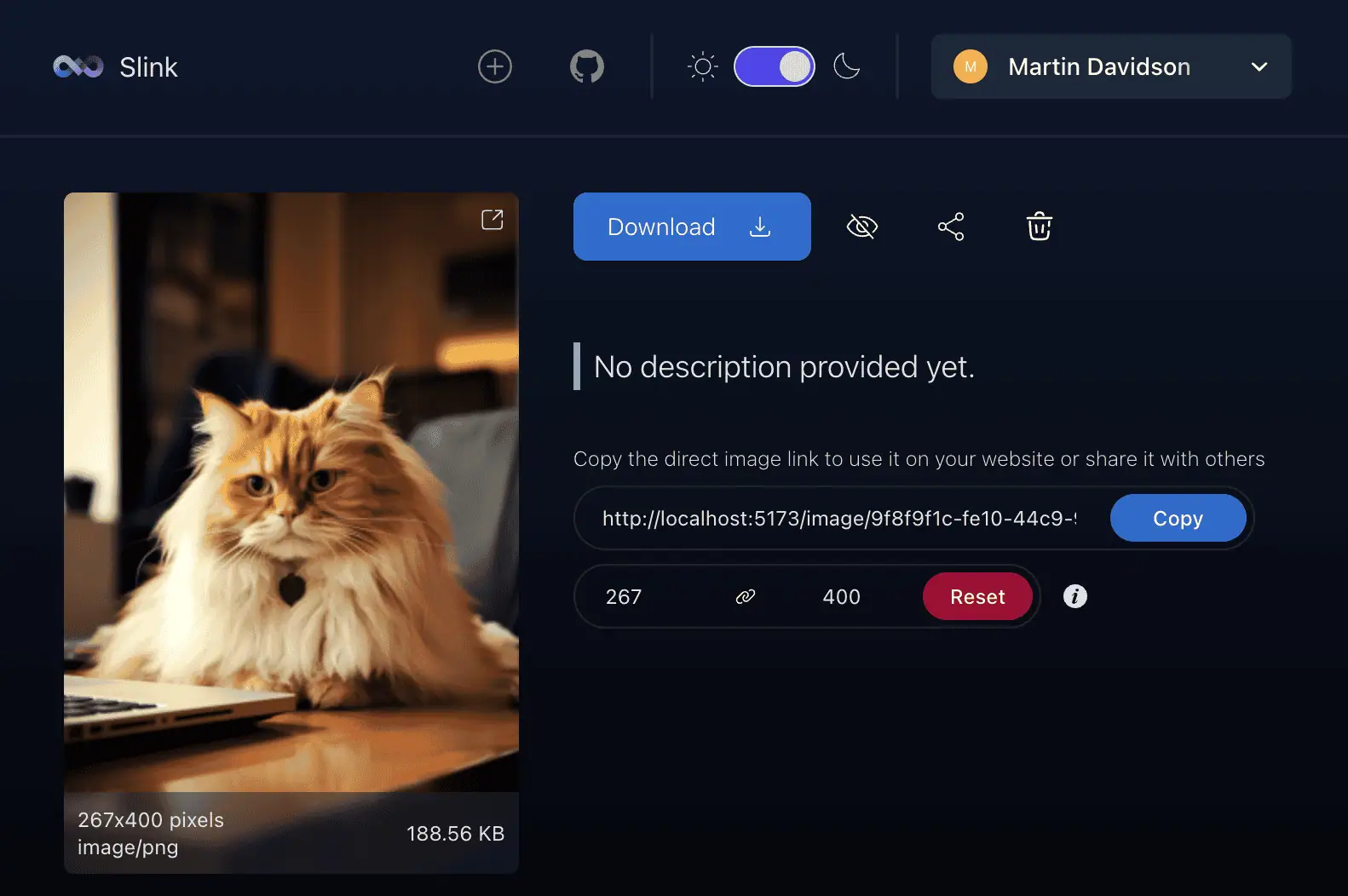
While a ton of new projects have popped up that leverage existing photo solutions to share media with others, Slink is a dedicated app for easily doing the same independently from other projects. Akin to hosted services like Imgur, Slink features the ability to upload several file types – which can be set to public or private – while allowing administrators to select from a number of backend storage providers to store the data.
GoDoxy
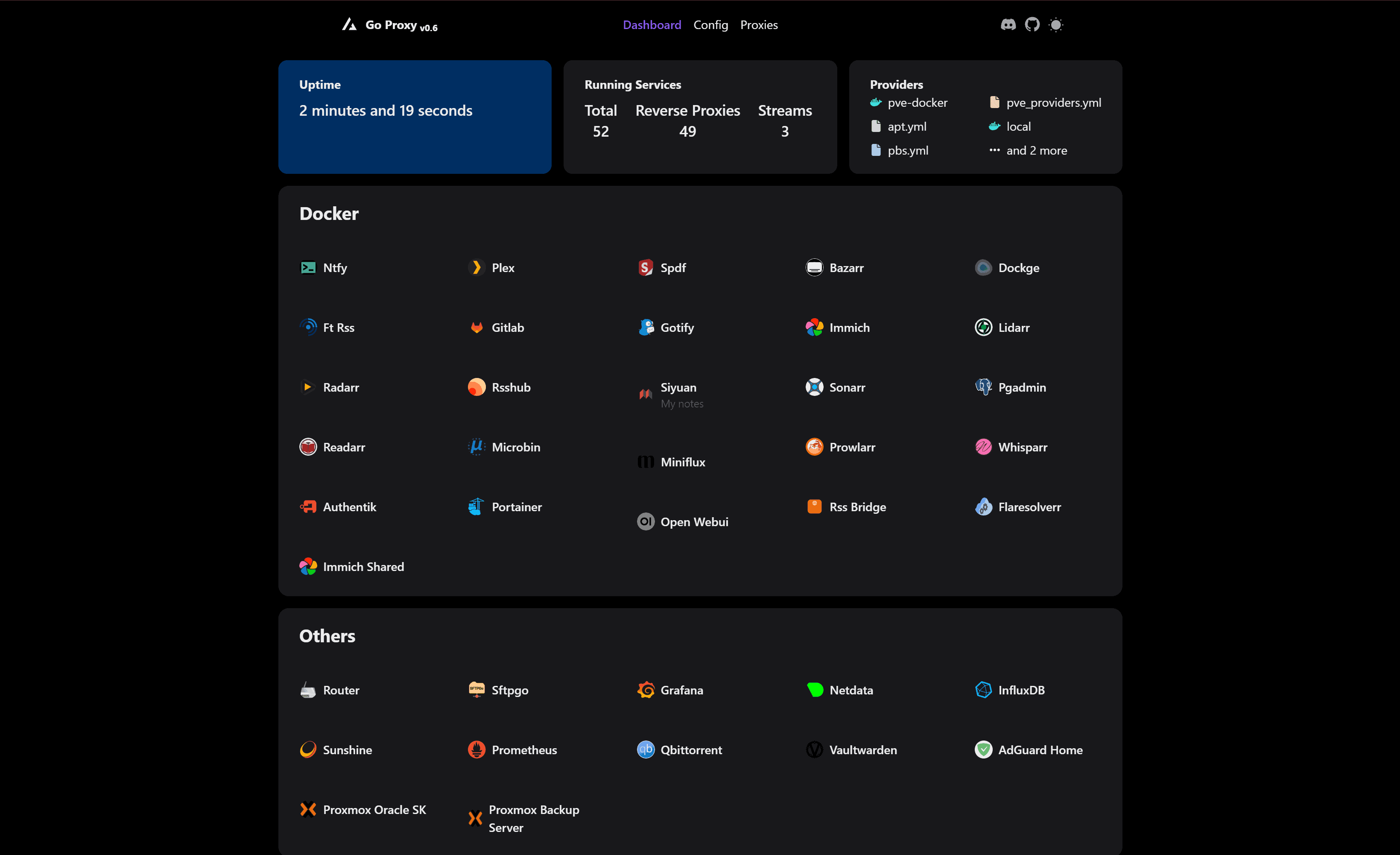
GoDoxy is a lightweight, easy-to-use reverse proxy developed to challenge some of the more traditional options in the space like NGINX and Traefik. Unlike many of the others, GoDoxy comes packaged with a web interface and dashboard while also supporting other common features like auto SSL cert management. However, what really sets it apart is its Docker integration with support for auto-configuration and the ability to stop idle containers and wake them when traffic is detected.




Comments